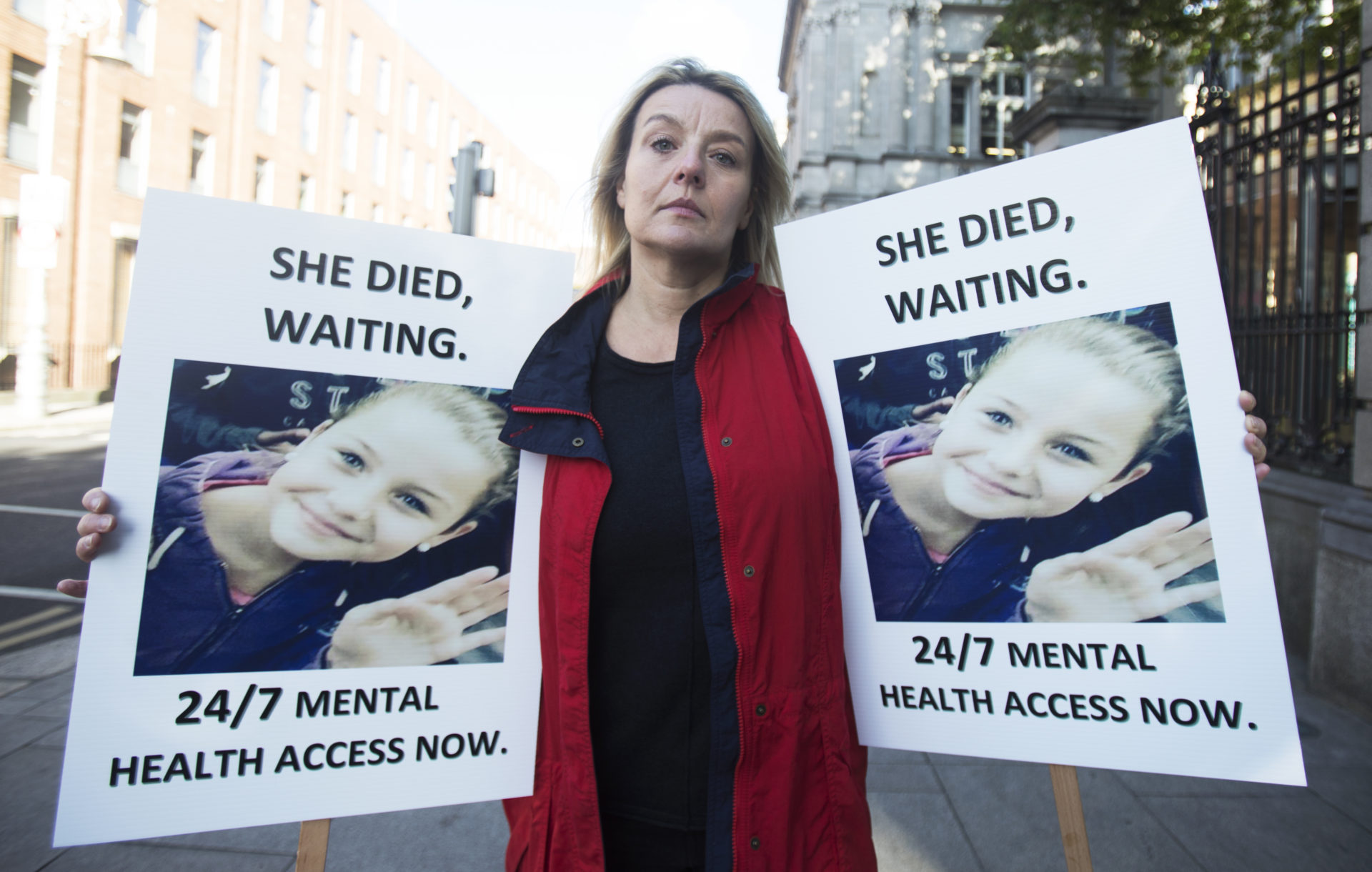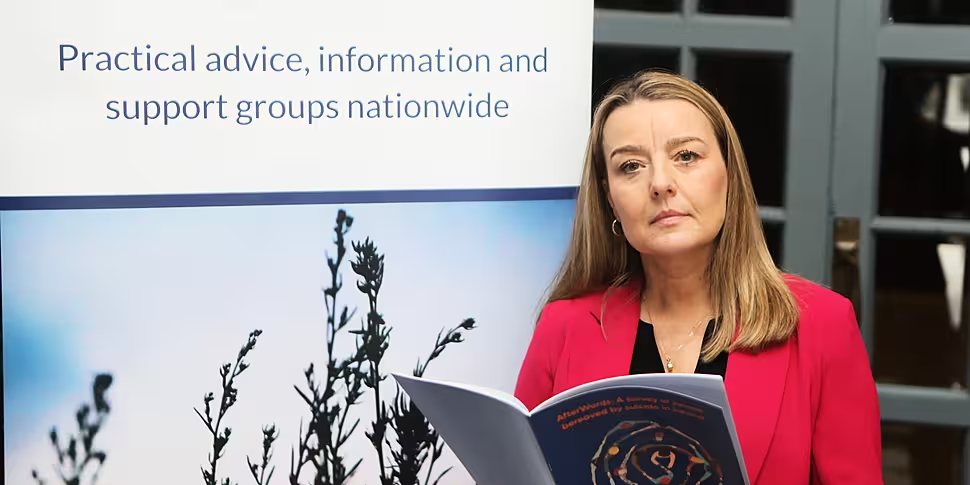Warning: this article contains multiple references to suicide. If you need help or support with thoughts of suicide, self-harm, depression or anxiety, you can contact The Samaritans on 116 123, Pieta House on 1800 247 247 or text HELP to 51444.
With the European Grief Conference (EGC) taking place earlier today, one charity aims to support those grieving by focusing on suicide postvention in Ireland.
Fiona Tuomey founded Healing Untold Grief Groups (HUGG), Ireland’s national suicide bereavement charity, following the death of her 11-year-old daughter Milly by suicide in 2016.
After a brief period of suicidal ideation Milly died by suicide, before getting to see a qualified practitioner in time “which could have prevented her death”, her mother said.
While attending the EGC today, Ms Tuomey spoke to The Hard Shoulder about the importance of grief and suicide postvention services.
“Milly’s death propelled me into a different way of living,” she said.
“I suppose you could say for me, the gap was in an area which I now know was called suicide postvention, which I didn't have the words for then, and essentially it is all of the services that are put in place for people after a bereavement by suicide.
“The reason for that is because people who have been impacted by suicide are 10 times more at risk of dying by suicide themselves than the general population.
“There was a gap in this area when I was looking for services and this is an area where there is a very great need to prevent further suicide, so it's an important part of suicide prevention.”
"Stigma does prevail"
Ms Tuomey said she believes “stigma does prevail” when it comes to people bereaved by suicide.
“They feel they can't talk about it, that perhaps other people are looking down upon them or their loved one who has died, and making judgment -then, of course, there's stigma within society,” she said.
“People are afraid to actually talk about suicide, afraid perhaps that maybe it will cause further deaths or risk, which we know is not true.
“If anything, talking about suicide lowers people's risk, and it's a really important part of healing and connecting people.”
135 People
A death by suicide affects 135 people at a minimum, with 60,000 people affected by suicide in Ireland alone every year.
“That's why it's so important that there are services in place, both therapeutic and non-therapeutic, that allow people to connect and get the support that fits them and their needs when they need them,” Ms Tuomey said.
“If that's in place, then we are going to lower the risk of further suicide and increase people's coping and people being able to what they call integrate their grief, in other words, been able to live with their grief and have a new life and move forward with it.”
 Fiona Tuomey outside the Dail with posters of her daughter Milly. 16/10/2019 Photo: Leah Farrell/RollingNews.ie
Fiona Tuomey outside the Dail with posters of her daughter Milly. 16/10/2019 Photo: Leah Farrell/RollingNews.ieMs Tuomey said services in the country are “improving” but it is “very slow”.
“There is still a huge amount of work that's left to our area… the non-government organisations - that's voluntary, groups and charities who really do the heavy lifting in this area,” she said.
“I mean, based on the fact that still the leading cause of death in this country for 15 to 34 year olds is suicide – it’s quite shocking.
“So the whole area of prevention and postvention is essential.”
Gaps
Mental health was allocated 6.6% of the total spend on health for Budget 2025, whereas the World Health Organisation recommend that this should be 10%, Ms Tuomey said.
“We are making progress, but it's slow progress, and where progress is slow there's gaps,” she said.
Ms Tuomey said early intervention is key to prevent suicide.
“All of the services right across the sector need to be fully funded,” she said.
“Unfortunately, they are not fully funded, which is where you see waiting lists and where you see problems and where people cannot access timely support, that's when problems arise.”
"Heartbreaking"
Seeing people still not being able to access timely intervention services eight years on from her daughter’s death is “heartbreaking”, Ms Tuomey said.
“There are some excellent people working within the services, and I'm sure it's utterly frustrating for them also,” she said.
“If whichever government comes into power next, ensures that the 49 recommendations that were made by the Mental Health Commission when they reviewed the CAHMS service are implemented, [it will] go a long way to resolving some of the problems within CAHMS.
“You know, we get great reviews that are done, independent reviews that are done, but let's go and make sure that the recommendations are actually implemented and that will make a difference.”
Listen back here:
If you have been affected by this issue you can call Samaritans on 116 123 at any time of the day, seven days a week.
Main image: HUGG CEO and founder Fiona Tuomey 11/10/2022 Photograph: Leah Farrell / Photocall Ireland









